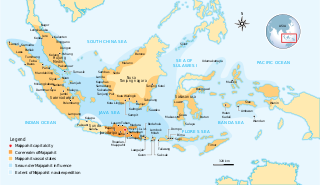It is proposed that this article be deleted because of the following concern:
If you can address this concern by improving, copyediting, sourcing, renaming, or merging the page, please edit this page and do so. You may remove this message if you improve the article or otherwise object to deletion for any reason. Although not required, you are encouraged to explain why you object to the deletion, either in your edit summary or on the talk page. If this template is removed, do not replace it . The article may be deleted if this message remains in place for seven days, i.e., after 18:38, 30 April 2022 (UTC). Find sources: "Noorhaqmal Mohamed Noor" – news · newspapers · books · scholar · JSTOR |
This article includes a list of references, related reading or external links, but its sources remain unclear because it lacks inline citations .(April 2022) |
Noorhaqmal Mohamed Noor(b. 1984) – also known as Aqmal N., is a Singaporean singer, musician, composer and producer. His song, "Warkah Cinta Dunia" (2009) has been distributed worldwide in internet websites such as Amazon, Rhapsody, iTunes, Napster, eMusic, SonicTap, ShockHound, Spotify, iMesh and Nokia.
He was the winner of Suria Mediacorp 2004, runner-up for Mediacorp Power 98FM "Army Icon" (2005) and Mediacorp Ria 98.7FM "Ria Remix" (2006), singer of winning song "Suara Itu" for Esplanade SingaRaya (2007), top five for Mediacorp Warna 94.2FM and Ria 89.7FM "Projek Rentak" (2008) and winner of Mediacorp Warna 94.2FM and Ria 89.7FM "Projek Rentak" (2009), with song entitled Warkah Cinta Dunia.
A singer/songwriter who has won most of Mediacorp's major competitions since winning Mediacorp Suria's Anugerah in 2004. First musician, singer/songwriter to have a research paper titled Muzik, Bahasa dan Media Baru (Music, Language and New Media) published in Bahasa Sumber Intelektual Peribumi (2009), a compilation of research papers on Malay language by experts of various fields. Literary activist and has published works, namely Awan Tak Larat in Jurnal Akademik Jilid VII (2007), Drama Waktu Sesudah Itu mengungkap pengalaman pendokumentasian in Jurnal Akademik Jilid VIII (2008), Pembelot in "Aku Ingin Menulis: Panduan Mudah Menulis Cerpen” and “Teman Siber” (2009), Pengaruh bahasa dalam seni kata dikir Singapura in Jurnal Akademik Jilid IX (2009), Representasi Puisi dalam pelbagai media dari sudut genetik in Jurnal Akademik Jilid IX (2009), Hitam in “Kasih Bunga Merah”(2009) and Muzik dan Pembelajaran: Satu penelitian in Jurnal Akademik Jilid IX (2009).



